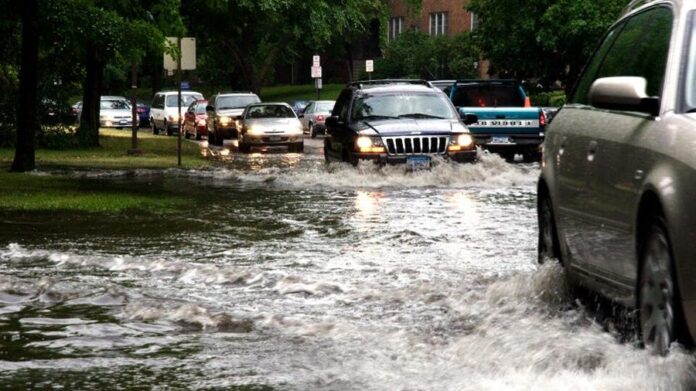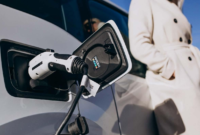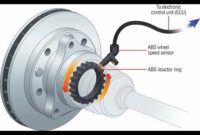
The alternator is an electrical power generating component that makes the car’s ignition and all its electrical components work. But, What happens if the alternator gets wet?this is a piece that It is practically allergic to water, if it happens in some cases it can cause serious damage, leading to removing and installing a new part. Despite the fact that this component has been designed to withstand some levels of water, it could affect its correct operation, in the same way it will depend on the level of water and pressure it receives. Here you can learn everything related to the subject, if the car’s alternator gets wet, it is better to avoid than to regret.

What is the car alternator?

The alternator is an important part of the engine, it is responsible for producing alternating current through magnetic fields. Transforms the mechanical energy produced by the motor into electrical energyY This energy is used to power all the electrical systems of the car, as well as keep the car battery charged.. The alternator transforms mechanical energy to potential energy, it is stored in the battery through the strap swivel. It ensures that the battery always has the necessary energy to start the car, the correct operation of the heating system, navigation, stereo and others. Considering that the alternator is a power generator for the car, ideally it should not get wet.
Is the car alternator waterproof?

Definitely, car alternators are NOT waterproof.. This is due to the design and manufacture of the alternator to make it work, so it’s hard to waterproof it. Most alternators are air cooled, air is drawn through the alternator by an internal fan, connected to the drive end of the alternator shaft. In this process, cold air is drawn in through the end opposite the transmission, while hot air is expelled through the end of the transmission. Let’s see the following, it’s interesting:
- Take, for example, the Stamford alternators used in generators have an IP rating of 23 with an optional upgrade to IP44.
- Deciphering: the cIP code also known as IP classification, refers to the number between 11 and 68.
- The The first digit (1 to 6) describes the degree of protection against solid objects, especially dust.
- The second digit between 1 and 8 indicates protection against water..
- to be considered ‘waterproof’ the enclosure must be rated IP 65 and IP 68.
Once the IP ratings are known, we mention what it means for the alternator. We have an IP23 rating which translates to:
- two: Protected against a solid object larger than 12.5mm, which is about the size of a finger.
- 3: Protected against splashing water up to 60 degrees from vertical. It can handle limited amounts of water for up to 3 minutes.
Alternator is designed to withstand a certain amount of water

As with most cars, the alternator is usually exposed to water in the engine compartment. Including rainwater, puddles and direct washing of the engine compartment, and of course it is not sealed, so it is not oblivious to being splashed by water.
The experience of specialist mechanics indicates that they have not yet known of an alternator destroyed by normal driving, even by deep puddles. As they state that the water splashes are not the problem.
- It may interest you: how to know if the alternator or battery fails
Although bad situations happen when the alternator is flooded
Will submerging the alternator in water work? The electrical parts of the alternator are sealed. The brass or bronze brushes inside the alternator are lubricated to prevent wear and arcing. If they get wet, this lubrication wears out. The brushes are deteriorated by the electric arc, so it suffers wear.
Likewise, continued exposure to water can lead to these brushes rusting, and perhaps coming out of contact with the slip rings. Another problem that a flooded alternator presents is dirt. If the car is submerged in water, sand and dirt, they can enter the brushes and numb them, leaving them out of contact with the slip rings.
Frequent questions
Can you clean an alternator with water?
An alternator can be cleaned with water, as long as you don’t pressure wash it directly. Pressure washing the engine compartment can affect the seals by deteriorating. Water is recommended over petroleum-based engine degreasers for cleaning the alternator.
Steps to follow:
- disconnect battery
- Have a container with warm water and dish soap, mix with a little water.
- Gently spray the soap and water mixture on the alternator terminals and brushes.
- Leave the soap on for 5 minutes
- Gently scrub dirty areas with a wire brush.
- Rinse well with clean water, let the alternator dry. It is best to leave the hood open so that air can flow into the engine compartment, this helps to dry it out.
The alternator has water, will it be in good condition when it dries out?
Yes, alternators are designed to withstand certain levels of water. In the event that the alternator got wet and does not work, the fault is possibly a wet diode or something similar. Wait 24 hours for the alternator to return to normal operation. Definitely, the alternator should not be wet, it ultimately brings consequences.
The alternator won’t charge after washing the engine.
Usually it is a failure when washing the compartment of the engine. It is also a problem when using a pressure washer, it can damage the alternator. In the event that the car is washed with the engine running, the alternator can suffer serious damage (burn), leading to the need to replace the part.
Writing Gossipvehicle
-
What if the alternator belt is loose?



